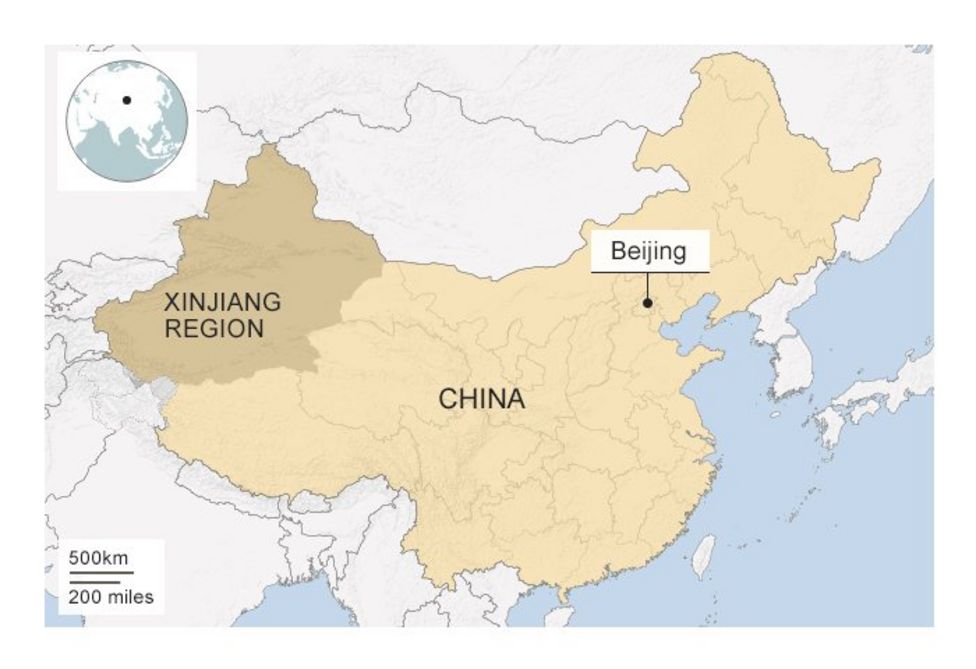China denies those allegations, saying the purpose of its so-called “re-education” programme in Xinjiang is to stamp out extremism among the Uyghurs and other Muslim minorities.
BBC
LONDON: China has imprisoned or detained at least 630 imams and other Muslim religious figures since 2014 in its crackdown in the Xinjiang region, according to new research by a Uyghur rights group.
The research, compiled by the Uyghur Human Rights Project and shared with the BBC, also found evidence that 18 clerics had died in detention or shortly after.
Many of the detained clerics faced broad charges like “propagating extremism”, “gathering a crowd to disturb social order”, and “inciting separatism”.
According to testimony from relatives, the real crimes behind these charges are often things like preaching, convening prayer groups, or simply acting as an imam.
The UHRP, working with rights group Justice for All, tracked the fates of 1,046 Muslim clerics — the vast majority of them Uyghurs — using court documents, family testimony and media reports from public and private databases.
While all 1,046 clerics were reportedly detained at some point, in many cases corroborating evidence was not available because of China’s tight control over information in the region.
Among the 630 cases where it was, at least 304 of the clerics appeared to have been sent to prison, as opposed to the network of “re-education” camps most closely associated with China’s mass detention of the Uyghurs.
Where information was available from court documents or testimony about the length of the prison sentence, the punishments reflect the harsh nature of Xinjiang justice: 96% sentenced to at least five years and 26% to 20 years or more, including 14 life sentences.
The database, which drew on research by the Uyghur activist Abduweli Ayup, as well as the Xinjiang Victims Database and Uyghur Transitional Justice Database, is by no means exhaustive — representing only a fraction of the total estimated number of imams in Xinjiang.
But it shines a light on the specific targeting of religious figures in Xinjiang, appearing to support allegations that China is attempting to break the religious traditions of the Uyghurs and assimilate them into Han Chinese culture.
China denies those allegations, saying the purpose of its so-called “re-education” programme in Xinjiang is to stamp out extremism among the Uyghurs and other Muslim minorities.
Tying religion to extremism
China is believed to have detained more than a million Uyghurs and other Muslims in Xinjiang, a large region in north-western China that is home to various ethnically Turkic peoples. The state has been accused of human rights abuses in the region, including forced labour, sterilisation and rape.
Most of those detained in Xinjiang are sent to “re-education” facilities — prison-like camps where they are held for indeterminate periods of time without charge. But others have been given formal prison sentences, the number and severity of which have increased dramatically since 2017.
Publicly available detention or charging documents are rare, but those that do exist demonstrate how the state has worked to tie ordinary religious expression in Xinjiang to extremism or political separatism.
According to the arrest notice for Oken Mahmet, a 51-year-old Kazakh imam from Qaba in Xinjiang, Mahmet was charged with “propagating extremism”. According to testimony collated by the Xinjiang Victims Database, his family says he was arrested for leading Friday prayers and officiating marriages at a mosque.
Mahmet’s initial detention notice says he was detained for “inciting people to violate national laws pertaining to the reading of marriage vows, education, and public governance, as well as making and propagating items related to extremism”. His sentence was reportedly eight to 10 years.

















